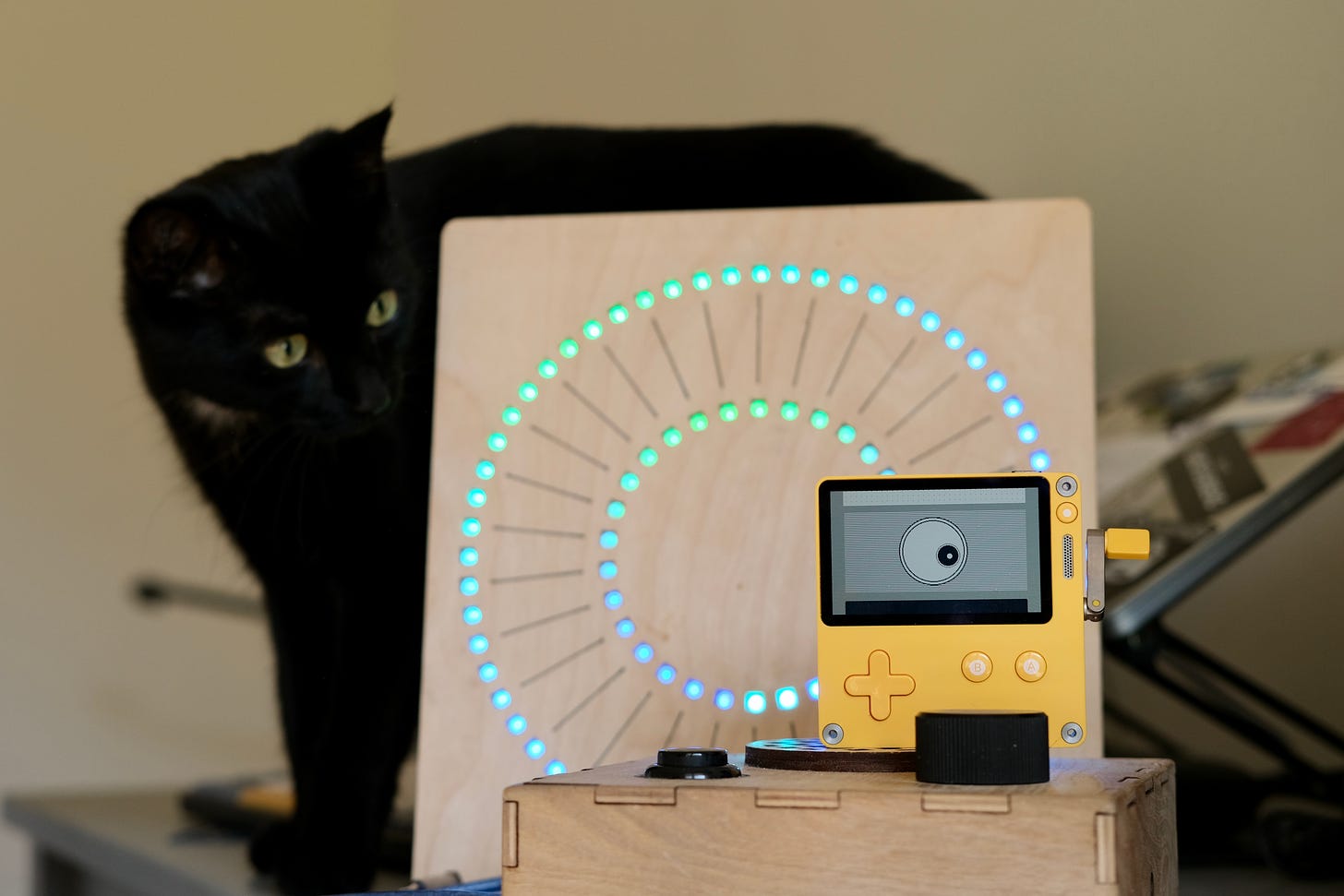What If Games Were Small
push to talk #12 // feat. the community of artists making games for the playdate
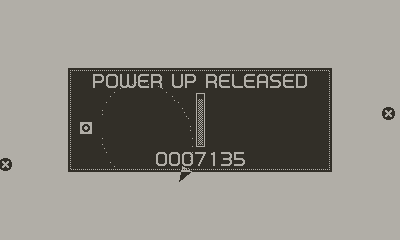
Games are getting too big, too expensive to make. Have you heard this? Apparently you need a team of 400 devs, 5-6 years, and $315 million dollars to make a game these days. We’re talkin’ quintuple-A, baby. Nobody tell Ubisoft, they’re still on that AAAA shit, lmao.
But the billion-dollar megahits represent only one end of the spectrum. At the polar opposite end of the games industry there is a thriving community of artists making hundreds of beautiful games for a tiny handheld with a black-and-white screen and a crank. This week I played a ton of Playdate games and talked to their developers about what’s possible when you embrace limitations.
That story is below. But first, the week’s spiciest news links.
Scuttlebutt and Slackery
The week’s most-shared, oft-Slacked, and spiciest games industry news links.
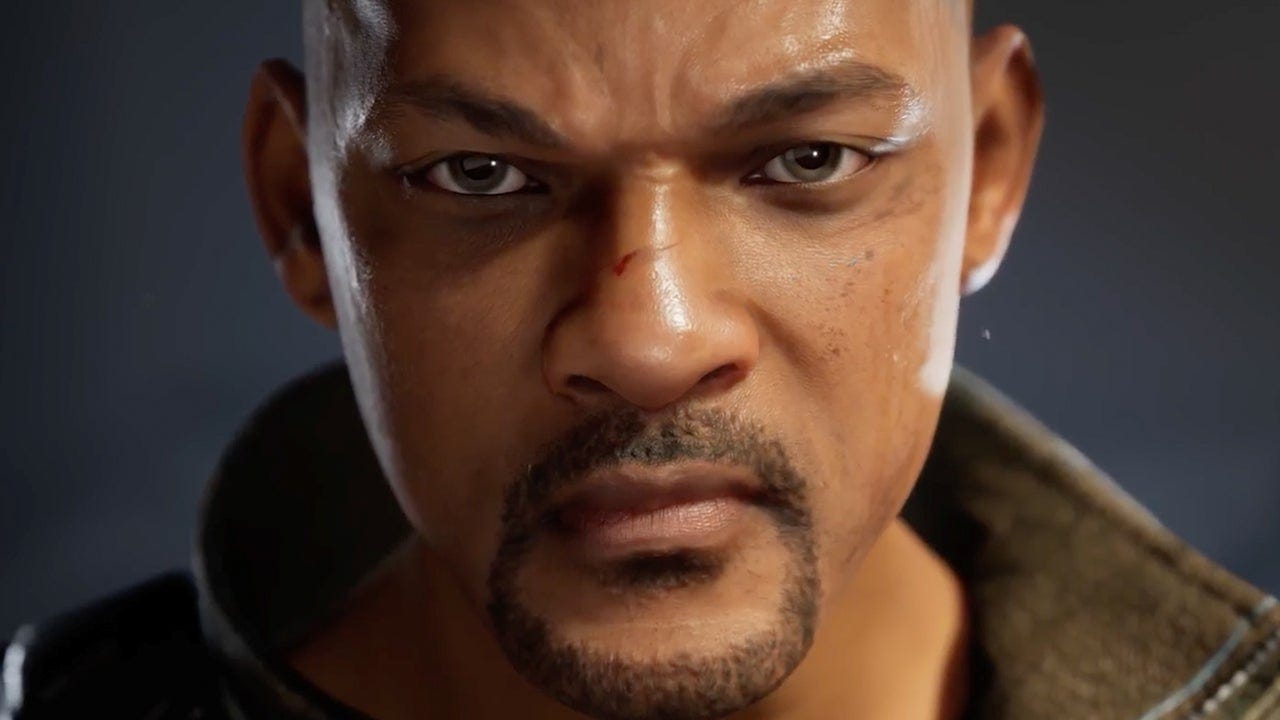
It was GDC this week! I had to miss this year’s conference as my third child is due to be born any minute now. I hope to be back next year.
Tencent’s Shifts Strategy, and a Will Smith Game Shifts Timelines - Deep in a Reuters article about a strategy shift at Tencent, it was noted that the game Undawn “flopped spectacularly despite having a budget of close to 1 billion yuan [$140 million] with more than 300 developers,” according to sources. The near-universal reaction to this news has been this is the first time I have ever heard of this game. “This is some reverse Mandela Effect thing, I'm certain,” said Dexerto’s Patrick Dane. “This thing just dropped into our timeline from another. I have to believe this.” (Reuters)
Apex Legends Esports Event Cancelled by a Hacker - Confusion abounded this week when multiple pro Apex players suddenly had cheats forcibly enabled by hackers while playing in a high-stakes tournament. The tourney was canceled, and the resulting uproar was so great that Epic’s Easy Anti-Cheat team—whose tech is employed by Apex—came out and said, basically, it wasn’t us, bro. Within a few days, Respawn successfully shipped the first of several patches to address the vulnerability. The hackers, meanwhile, went on a media tour, even giving an interview to TechCrunch. All of this sucks, and you’ve gotta feel bad for the devs and pro players. (TechCrunch)
Kotaku’s EIC Resigns in Protest of New Editorial Guidelines - Editor-in-Chief Jen Glennon said she resigned after management at G/O Media laid out a mandate to deprioritize news in favor of game guides. In a letter shared with Aftermath, Glennon said “the decision to ‘invert’ Kotaku's editorial strategy to deprioritize news in favor of guides is fundamentally misguided given the current infrastructure of the site.” Former Kotaku editor Stephen Totilo shared his view on the situation: “F*** G/O Media.” (Aftermath)
The Super Mario Maker Community Faces its Final Boss - Easily the coolest story this week: From the game’s release on the Wii U in 2015 until March 2021, Nintendo allowed people to upload their own custom-designed Super Mario Maker levels for anyone in the world to play, with the restriction that the creator must first prove the level is winnable by clearing it themselves. In the years since, tens of thousands of nearly impossible levels have remained unbeaten by anyone except the original uploaders. Now a community of the world’s best Super Mario Maker players is working together to clear all of the unbeaten levels (like this one). They only have until April 8th to do it, as then Nintendo is turning off the game’s servers for good. (Ars Technica)
What If Games Were Small
Way back in May of 2019, the team at Portland-based games publisher Panic unveiled their plans for a new, incredibly charming-looking handheld, the Playdate. In a world of 8K screens and graphics cards that cost more than a used car, this was a hilariously humble pitch. It’s barely 3 inches wide and tall. It has a 400 × 240, single-bit black-and-white screen. For some reason, it has a crank. I was instantly sold.
Three years later, my Playdate arrived in the mail, complete with 24 included games. I played with it, for a bit. A couple of hours here or there. But—I’ll be honest—at some point the damn thing ended up lost in the back of a drawer and I just sort of forgot that it existed. Until a couple of weeks ago, when I saw a tweet from the Playdate team announcing a flash sale on over 100 games available in their online store. I thought, wait a minute, who’s making all these?
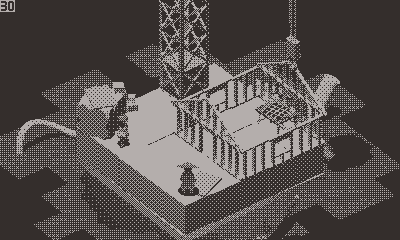
As it turns out, great games have been dropping on the Playdate Catalog weekly for the past year—it now offers about 150 games for sale. Few cost more than $10, and even some of the “bigger” games, like the recently-released Mars After Midnight, from Return of the Obra Dinn creator Lucas Pope, is only $6.
Over the past two weeks, I’ve bought and played over 30 Playdate games, and I’m pretty blown away by what’s happening with this thing. It’s a legit platform that’s allowing players and developers to explore game worlds defined by limits, rather than by the ever-expanding scope, graphical wow-factor, and overall spectacle of the mainstream games industry.
The Beauty of Limitations
Two of my favorite Playdate games are Omaze and oom, minimalist puzzlers made by Ukrainian developer Gregory Kogos. These games are tiny—they each take up under 100 KB of memory—but I spent a couple of hours absolutely entranced by them. These are elegant, tightly-designed games, and I’m not sure they’d work on any platform other than the Playdate.
I reached out to Kogos to ask about his design philosophy and the business of making games for the Playdate. I especially wanted to know: does making these games actually pay the bills?
“I'm in a unique position where both of my games were commissioned by Panic,” Kogos says. “So for me, it definitely pays the bills.” But, Kogos says, most of the developers making games for PlayDate right now are in it “for the community and the fun of the process, which if you ask me something that money can't buy.” Plus, Kogos says, “It’s much better for the artistic process since you are more bothered with how to make the game actually good, rather than appealing for the market.”
Before making games for the Playdate, Kogos was heavily involved with the alt.ctrl games scene—a loose collective of artists and designers who create wild and wacky games based around custom-built controllers. For the last ten years GDC has given prominence to the scene with an annual showcase, and Kogos has participated with works like RotoRing, a homebrewed hardware/software combo where the “display” is literally a bunch of LEDs controlled by a big knob.
Watch it in action below:
I mean, come on. You can give Gamedev MacGyver over here some Christmas lights and packing tape and he’ll whip up a killer puzzle game. Of course a guy like this is making games for the Playdate.
Asked about his plans for the future, Kogos says “I feel like I have a few more PlayDate games in me.” He also intends to make some “non-game knick-knacks for the console.”
But games are his medium of expression: “My ultimate goal is to be so proficient at game design that I can directly translate my emotions and feelings through games. Just like musicians can do through music. There is a long way ahead of me.”
Standout Playdate Games from the Catalog
These are just some of my favorites that I’ve discovered in the last week. I honestly think these make the device worth the $199 asking price.
Spacerat Miner - $10
An excellent little roguelite mining game with procedurally generated levels and creative boss fights. It’s very fast-paced, and you have to frantically crank to keep your drill spinning, which adds to the chaotic feel.
Eyeland - $2
A super quick old-school adventure with lovely writing. Hard to say more about this one without spoiling it. I really loved it, though.
Root Bear - $3
You gotta pour root beer for bears, and the crank controls the tap. A very grabby high-score-chase kinda game.
Bloom - $10
Sort of Stardew Valley without all the walking around? You make money by growing flowers in your apartment’s rooftop garden, as a story unfolds via text messages from friends and family members that arrive over the course of several real world days (using the Playdate’s built in clock).
A Joke That’s Worth $0.99 - $1
A crazy hard physics challenge that requires you to bounce a guy around using the crank while a narrator tells a joke in the background. Made me laugh out loud for 10 minutes straight. There is a second joke included which the creator insists is worth 1 cent, so the asking price is justified.
Impossibly Small Games With Huge Possibilities
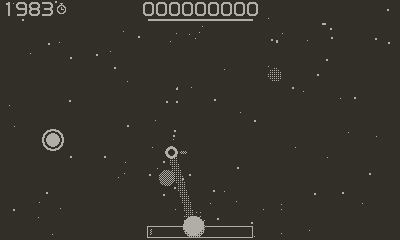
Matt Sephton has been tinkering around with game development for about 20 years, but got serious in 2020. “When the first COVID lockdown hit the United Kingdom,” Sephton says, “it coincided with me getting my hands on an early-access developer Playdate device. I began crafting prototypes on the Playdate, and almost immediately, I felt it was an opportunity too good to pass up.”
The result: two of the best arcade-style games on the Playdate, Super ICARUS and YOYOZO, the latter of which was declared one of the best games of 2023 on any platform by Ars Technica.
At only 39.4 KB, YOYOZO is likely the smallest game on the Playdate—a technical challenge Sephton intentionally embraced, as he explained in a dev diary about the game’s creation.
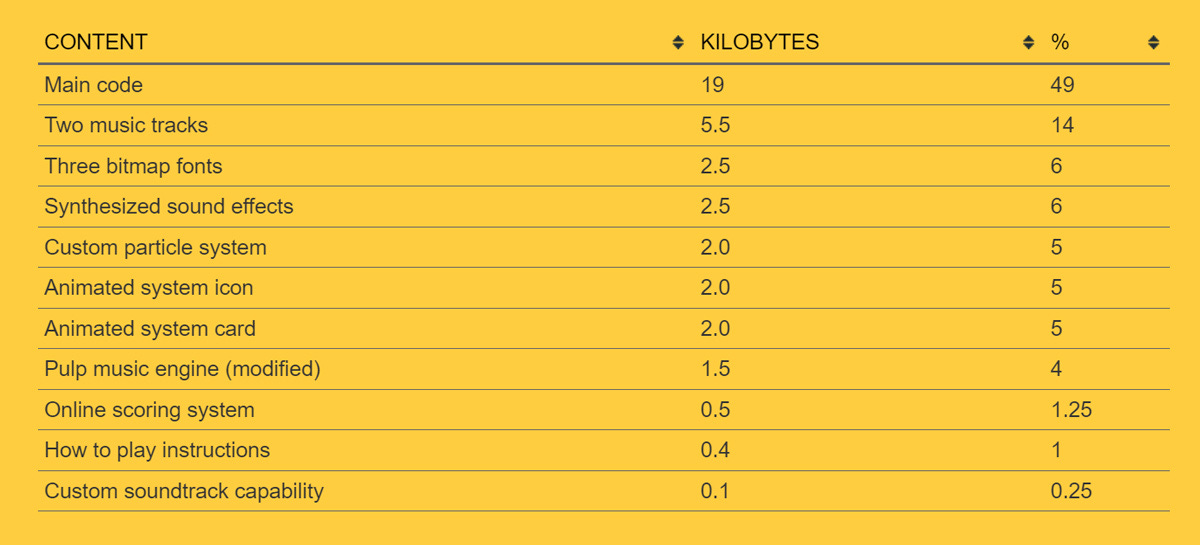
Sephton says that although only a fraction of the Playdate’s install base (70,000 units sold, per an announcement last month) actively engage with the platform and purchase games from the Catalog, he’s encouraged by the platform’s recent growth—the numbers go up, week by week.
“Naturally, I'd be even more thrilled if more people were buying and playing my games,” he says, but “my simple aim is to do well enough to fund my next game idea.”
The various awards his games have gotten, Sephton says, also serves as a nice confirmation that he’s headed in the right direction.
One of the meatiest games currently on the Playdate, the roguelike dungeon-crawling RPG Under the Castle. I took me about five hours of playtime to beat it.
Sephton says that his favorite era in games was that stretch in the 2000s from the Gameboy Advance through the DS and the Wii. “Over that decade, there was an explosion of amazing and inventive games released,” he says. “However, a decade later, many concepts and ideas remain untapped, as numerous developers opt for safer choices, sticking to existing genres like platformers or first-person games.”
“Comparatively,” Sephton says, “music, movies, and literature seem to me to offer a much broader range of diversity than gaming does at present.”
I know a lot of people might disagree with this sentiment—look at all the games we have! Gaming is amazing! But I feel like I know where Sephton is coming from. Just spending a couple of weeks with the Playdate introduced me to a dozen game mechanics I’ve never seen before, and it seems inarguable that these innovations are at least in part a response to the limitations imposed by the device. With a whole community cranking away on games for this thing, new ideas are naturally going to emerge.
I don’t want to overstate my case here. By any measure, there are more games being made today for a wider variety of input devices than ever before—touchscreens, handhelds, keyboards and mice, controllers, VR headsets, and (inexplicably) cranks.
My own career in games, however, has had a remarkably more narrow focus—mostly free-to-play, live service, competitive, online multiplayer games for PCs and consoles. Hell, half the games I’ve worked on have had Legends in the name.
So it comes as a nice reminder, when I see the wild, innovative stuff the Playdate community is doing, that the world of septuple-A monster megahit games doesn’t actually encompass the entire realm of the possible.
There is a universe of undiscovered games waiting to be made. Maybe the next big idea in games will come from a smaller starting point?
That’s it for this week. I’m gonna go install 200 GB of Steam updates on my laptop, which has a processor 2 million times more powerful than the computers NASA used to pull off the moon landing.
See you next Friday.






